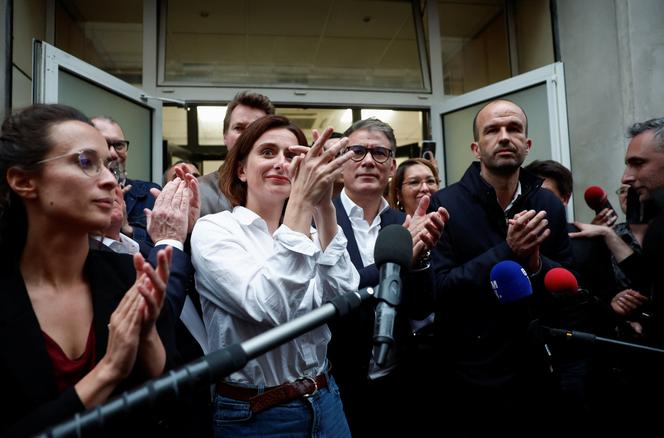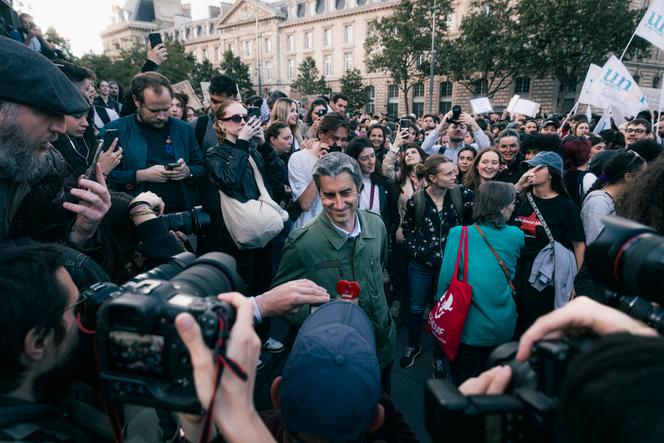


It only took four days for the left to reach an agreement. Negotiations were held at a snail's pace, constrained by the deadline for submitting candidate lists on June 16, and by the gravity of the circumstances in the face of the far right's historic gains in the European elections. "We did it. A page in French history has been written," rejoiced the head of the Parti Socialiste (PS), Olivier Faure, on Thursday, June 13, as the left announced it had reached an agreement for the Nouveau Front Populaire alliance. Leader of the radical left La France Insoumise (LFI) Jean-Luc Mélenchon hailed on his blog "a considerable political event in France."
Unlike the Nouvelle Union Populaire Ecologique et Sociale (NUPES), the left-wing coalition formed for the 2022 legislative elections, this "popular front" was backed by former Socialist president François Hollande within minutes of its creation. "I don't know the details, but for me, what's essential is that the union was able to be made. I have my differences, which we all know, but there comes a time when we go beyond our differences and focus on what's essential," he said on television on Thursday evening.
From Sunday evening and the call by former LFI MP François Ruffin for the formation of a "popular front," to Thursday, back to back meetings took place. Starting with secret gatherings on Monday morning between two or three Socialists, Greens and Communists, first at the campaign headquarters of the Parti Socialiste and its lead candidate for the European elections, Raphaël Glucksmann, then at the headquarters of Europe Ecologie-Les Verts (EELV, France's Green Party). On this occasion, EELV head Marine Tondelier, perhaps spurred on by some of LFI's good results in the constituencies of the Green MPs, but also by the left wing of her party, warned her comrades that an agreement without LFI was impossible for her movement.

It was out of the question, however, for all the parties to return to LFI headquarters, in Paris's 10th arrondissement, as proposed by party coordinator Manuel Bompard, Mélenchon's top lieutenant. Two years ago, the Socialists felt like they were on the road to Canossa, walking under boom mics and cameras. This time, the gathering spot was the EELV headquarters a few hundred meters away, on Rue des Petits-Hôtels, a sort of political "Switzerland," given that the Greens scare no one. They provided pizzas, fruit skewers and macaroons.
The idea of four-way discussions quickly took hold, catching the Socialists off guard as they emerged from a divisive and virulent campaign with LFI. LFI's almost 10% score in the European elections came into play. And dreams of alliances based on different allegiances – Glucksmann proposed uniting with MPs from the Libertés, indépendants and outre-mer et territoires group – weighed much less electorally. The plan to bring together republicans from both the left and right, raised by Former prime minister Bernard Cazeneuve and supporters of President Emmanuel Macron, came up against the collapse of the right-wing Les Républicains party. Above all, it made little sense because a large part of the left-wing electorate has gradually ruled out voting for the French leader.
You have 74.16% of this article left to read. The rest is for subscribers only.
